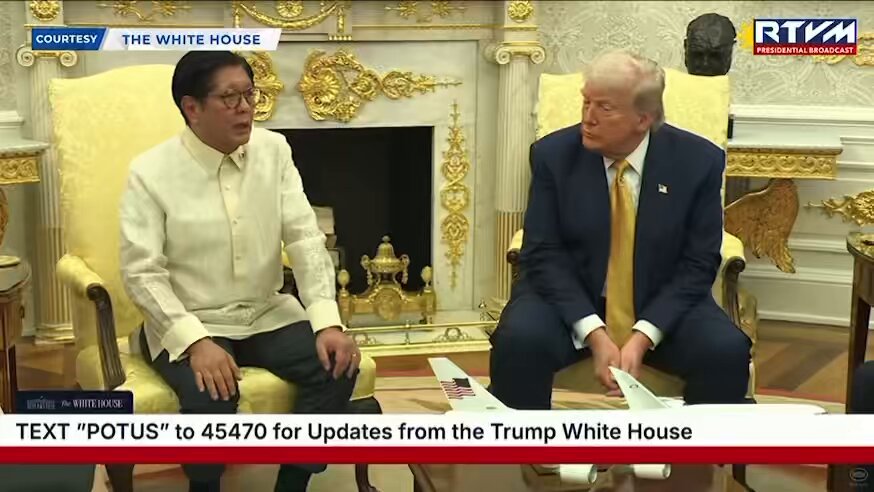[GUEST ACCESS MODE: Data is scrambled or limited to provide examples. Make requests using your API key to unlock full data. Check https://lunarcrush.ai/auth for authentication information.]  Arnaud Bertrand [@RnaudBertrand](/creator/twitter/RnaudBertrand) on x 340.4K followers Created: 2025-07-26 12:36:33 UTC This is a funny and very revealing exchange: Filipino President Marcos, undoubtedly the most committed US vassal in Asia, doubles down on his commitment to the US in front of Trump, saying "there's no need to balance the relationship between the US and China" and that his "strongest partner has always been the US." Trump immediately rebukes him, saying he "doesn't mind if [Marcos] gets along with China because we're getting along with China very well," and telling Marcos that getting along with China is "doing what's right for his country," would "make the Philippines great again" and "wouldn't bother me at all." Now there are two ways to read this. Either Trump is being disingenuous and in fact wants to continue traditional US foreign policy of containing China through regional alliances, and his public comments are merely rhetoric designed to appear reasonable while privately maintaining pressure on Marcos to choose sides in the US-China competition. Or he does in fact represent a shift in US foreign policy whereby he accepts the reality of a multipolar world where containment is impossible and vassals like Marcos are therefore costs without much strategic benefit, from whom America won't require the anti-China alignment that defined the alliance system. In fact, in a multipolar world, as Trump is saying, it makes more sense for the US to "get along with China very well" and treat Beijing as a co-equal power rather than maintaining the expensive pretense of global hegemony. I personally think it's becoming more and more obvious the latter is the case, as I argued in my recent article:  XXXXXX engagements  **Related Topics** [china](/topic/china) [donald trump](/topic/donald-trump) [asia](/topic/asia) [Post Link](https://x.com/RnaudBertrand/status/1949086436587618421)
[GUEST ACCESS MODE: Data is scrambled or limited to provide examples. Make requests using your API key to unlock full data. Check https://lunarcrush.ai/auth for authentication information.]
 Arnaud Bertrand @RnaudBertrand on x 340.4K followers
Created: 2025-07-26 12:36:33 UTC
Arnaud Bertrand @RnaudBertrand on x 340.4K followers
Created: 2025-07-26 12:36:33 UTC
This is a funny and very revealing exchange:
Filipino President Marcos, undoubtedly the most committed US vassal in Asia, doubles down on his commitment to the US in front of Trump, saying "there's no need to balance the relationship between the US and China" and that his "strongest partner has always been the US."
Trump immediately rebukes him, saying he "doesn't mind if [Marcos] gets along with China because we're getting along with China very well," and telling Marcos that getting along with China is "doing what's right for his country," would "make the Philippines great again" and "wouldn't bother me at all."
Now there are two ways to read this.
Either Trump is being disingenuous and in fact wants to continue traditional US foreign policy of containing China through regional alliances, and his public comments are merely rhetoric designed to appear reasonable while privately maintaining pressure on Marcos to choose sides in the US-China competition.
Or he does in fact represent a shift in US foreign policy whereby he accepts the reality of a multipolar world where containment is impossible and vassals like Marcos are therefore costs without much strategic benefit, from whom America won't require the anti-China alignment that defined the alliance system. In fact, in a multipolar world, as Trump is saying, it makes more sense for the US to "get along with China very well" and treat Beijing as a co-equal power rather than maintaining the expensive pretense of global hegemony.
I personally think it's becoming more and more obvious the latter is the case, as I argued in my recent article:

XXXXXX engagements
Related Topics china donald trump asia